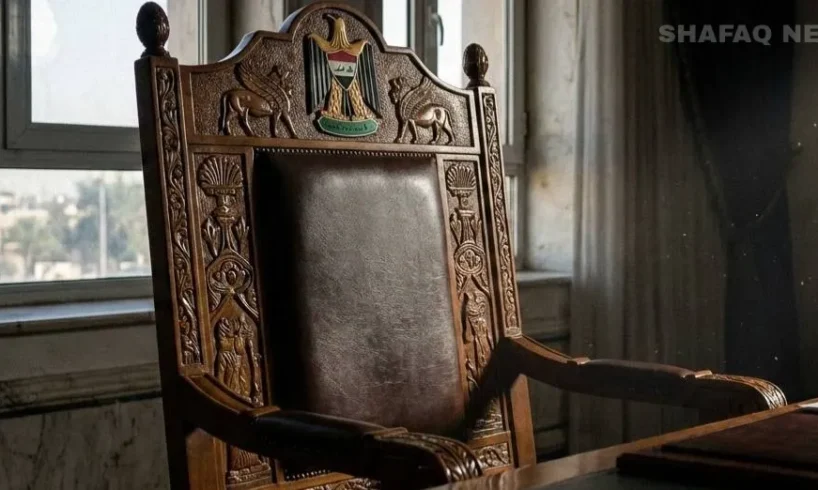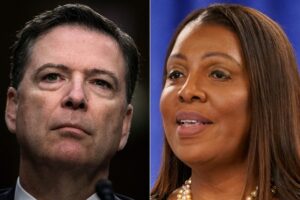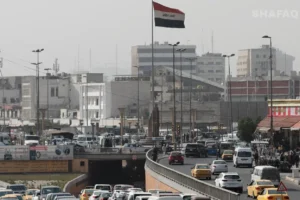
Shafaq News
Iraq’s new government
is taking shape under a heavy shadow: Washington and Tehran are both watching,
both pulling, both asserting influence—despite public claims of friendship and
respect for Iraq’s independence.
US President Donald
Trump’s Special Envoy to Iraq, Mark Savaya, delivered a clear warning: the
United States will not tolerate foreign interference in Baghdad’s political
corridors. Savaya’s statements, issued days before a planned visit to the
capital, mark a new phase in the battle for influence.
“The United States
has long portrayed itself as a friend of Iraq, committed to its independence
and development,” Savaya noted in previous remarks. Yet analysts point to
sanctions, energy restrictions, and legislative pressures that tell a more
complicated story—one in which American influence is tangible.
In recent comments,
Savaya emphasized that the US “will not allow any foreign interference in the
formation of the new Iraqi government,” stressing that Washington is “closely
following” the process. Analysts quickly read between the lines: this message
was aimed squarely at Iran.
Tehran answered with
its own message—just as direct. Iranian officials dismissed Washington’s
warnings and accused the United States of being the real source of instability
in Iraq. Iranian Foreign Minister Abbas Araghchi underscored that Iran
“respects Iraq’s political independence” and engages only at Baghdad’s request,
pointing to ties that long predate the American presence and cannot be reduced
to interference.
The tone hardened
even further. Foreign Ministry spokesperson Esmaeil Baqaei charged that
Washington is seeking to influence Iraq’s internal affairs, portraying recent
American positions as attempts to heighten tension around the formation of the
new government, stressing that Washington’s actions reveal a continued effort
to shape outcomes from a distance.
Read more: Iraq between two fires: Tehran and Washington eye Baghdad’s post-election phase
Shadow Power
Iranian analyst Ali
Akbar Borzanoni described Tehran’s response to US warnings as “natural and
expected,” stressing that it does not shake the “fundamental principle” of
non-interference in selecting a prime minister or pressuring political forces.
He added that Iran
seeks “normal and balanced relations” with Baghdad, focusing on trade, culture,
energy, and infrastructure, noting that Iraq’s stability is “a shared regional
interest.”
Yet Iran’s influence
is concrete. On November 11, Iraq concluded its sixth parliamentary elections
since 2003, with a voter turnout exceeding 56%. Official results released by
the Independent High Electoral Commission (IHEC) redrew the map: Shiite parties
now hold 187 seats, Sunnis have reached 77, and Kurds secured 56.
Within that Shiite
bloc, 148 belong to the Coordination Framework (CF)—the Shiite political
alliance currently steering Baghdad’s government—and roughly 80 lawmakers are
aligned with Tehran. Key players in this network are hard to ignore. The State
of Law Coalition (E’tilaf Dawlatal-Qanoun), led by former PM Nouri Al-Maliki,
reached 29 seats; Sadiqoon Movement, led by Qais Al-Khazali, claimed 27; Hadi
Al-Amiri’s Badr Organization secured 21; Ammar Al-Hakim’s National State Forces
Alliance (Quwa Al-Dawla Al-Wataniyah) holds 18; and Hossein Moanes’ Huqooq
(Rights) adds six more. These are not just lawmakers—they are levers of
influence, channels through which Tehran can shape decisions even while
publicly emphasizing non-interference.
The first test comes
with the selection of the next prime minister. Despite the 80 lawmakers aligned
with Iran, the largest parliamentary bloc belongs to caretaker PM Mohammad Shia
Al-Sudani’s Reconstruction and Development Coalition (Al-Ima’ar Wal Tanmiya).
While Washington has not openly endorsed him, analysts see US approval lurking
in the background—especially compared to Al-Maliki, who has long counted on
Iran’s backing.
Read more: Indecisive victory: PM Al-Sudani’s second term faces Shiite balancing act
Inside the CF,
however, unity is far from guaranteed. Some factions openly question
Al-Sudani’s reappointment. Alaa Al-Hadadi of the State of Law Coalition said
that his party, along with Sadiqoon, Badr, and Huqooq, oppose extending his
term, accusing him of drifting away from their influence and moving closer to
regional actors like Turkiye and Qatar.
Al-Hadadi added that
Al-Sudani has shown willingness to engage with Washington on potential
disarmament talks and is leaning on advisors skeptical of Tehran-aligned
factions. The premiership has become a clear window into the broader power
struggle: both Tehran and Washington are exerting influence, and for now, the
outcome remains very much in play.
Beyond political
alliances, Tehran has a hand in Iraq’s security architecture through the PMF—a
mix of armed factions equipped and backed by Tehran. Coordination Framework parties
and PMF-linked lawmakers actively lobby to shape legislation and government
appointments, demonstrating that influence does exist.
Iran also wields soft
power, funding religious institutions, media networks, and charities aligned
with its political vision, subtly shaping public opinion and parliamentary
priorities across the country.
Read more: raq’s new political equation: Armed groups’ gains put pressure on US
Sanction Ceiling
Meanwhile, Iran
expert Mehdi Azizi doubts Washington will ever fully step back. He points to US
interference in elections, especially among Sunni parties, where “financial and
political support” has been sought to tilt results.
He also highlights
legislative battles. The PMF Authority Law, widely backed by Iraqi lawmakers,
stalled in the previous parliament because Washington opposed it. That, he said,
“illustrates the tangible effect of external influence on Iraq’s legislative
and political outcomes.”
Azizi notes that the
US role extends beyond politics. Over the past years, Washington imposed
sanctions on Iraqi organizations linked to Iran. Baghdad was blocked from
importing electricity from Iran, and efforts to tap Turkmenistan gas were
stymied because the pipeline runs through Iranian territory.
These moves, part of
Washington’s “maximum pressure” policy, show that US influence extends deep
into Iraq’s economy, shaping budgets, energy decisions, and even local business
calculations.
American diplomatic
engagement adds another layer: US officials routinely meet party leaders,
tribal figures, and provincial governors to shape coalitions and parliamentary
alliances, exerting influence without formal legislation. Azizi adds that US
companies—particularly in energy and reconstruction—also give Washington
indirect leverage in policy outcomes.
“Iraq is a central
element in regional power balances,” he said. “It’s unrealistic to expect the
United States to step away completely.”
Read more: Energy crisis now political: US halts key Iraqi gas deal
The Last Outlet
From Washington,
political researcher Ramadan Al-Badran sees Iran weakened and isolated. Losing
leverage in its nuclear file and affiliated factions, Tehran views Iraq as “the
last outlet” to ease pressure. The US, he says, is working to “drain this leverage”
through diplomacy and political pressure.
Al-Badran warns that
Iraq’s next government could either support Iran or strip it of its remaining
diplomatic and factional influence over the next four years. At the same time,
he said the Trump administration is “in a difficult position,” presenting
Iraqis with a choice: stability, but only if they distance themselves from
Iranian influence.
Political analyst
Nabil Mikhael, also based in Washington, says US influence is clear. “The
United States aims to limit Iranian influence,” he said, “while Tehran seeks to
strengthen allies within Iraq’s political system.”
Mikhael points to
Washington’s interventions in legislation and policy—even when Iraqi lawmakers
support a measure, if it runs counter to US interests, it can be blocked.
Meanwhile, Iran’s grip through parliamentary alliances, ministry appointments,
and armed factions ensures its voice is never absent from government decisions.
In Baghdad, two
powers deny involvement, two narratives compete for legitimacy, and Iraq’s
political arena remains the space where both claims are tested—not by
statements, but by the pressure felt behind them.
Read more:Iraq’s PMF Law: A battle for state control
Written and edited by
Shafaq News staff.





